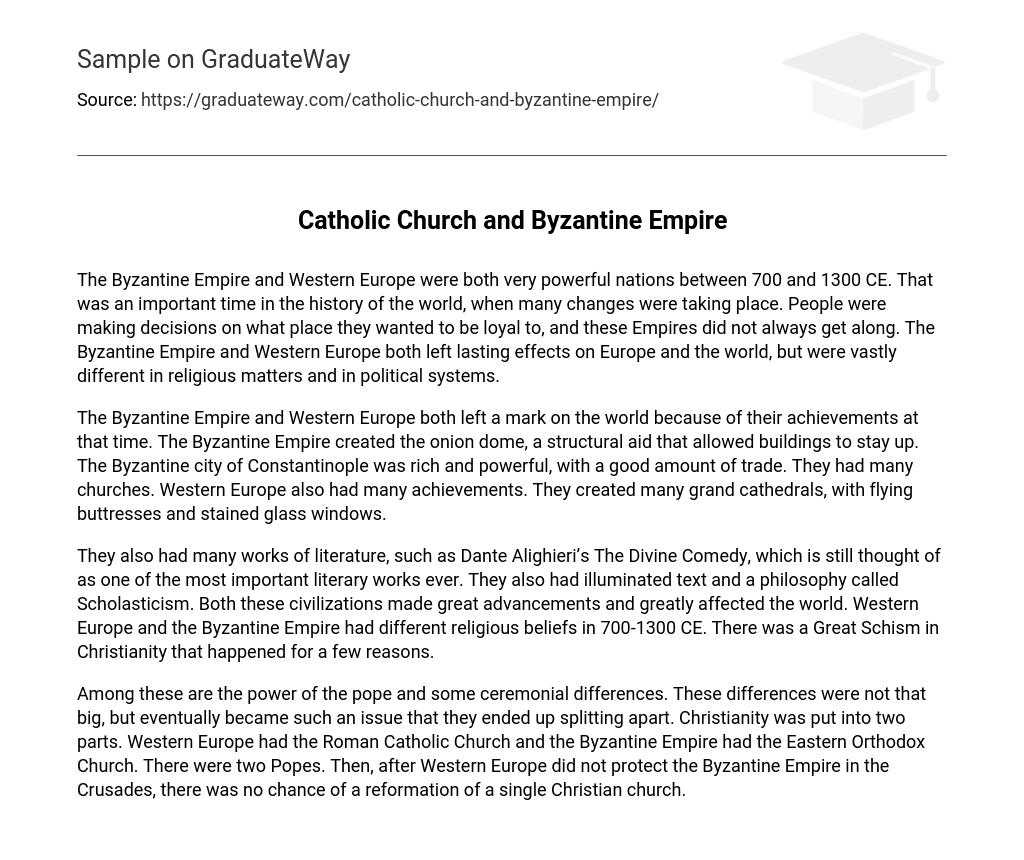The Byzantine Empire and Western Europe were both very powerful nations between 700 and 1300 CE. That was an important time in the history of the world, when many changes were taking place. People were making decisions on what place they wanted to be loyal to, and these Empires did not always get along. The Byzantine Empire and Western Europe both left lasting effects on Europe and the world, but were vastly different in religious matters and in political systems.
The Byzantine Empire and Western Europe both left a mark on the world because of their achievements at that time. The Byzantine Empire created the onion dome, a structural aid that allowed buildings to stay up. The Byzantine city of Constantinople was rich and powerful, with a good amount of trade. They had many churches. Western Europe also had many achievements. They created many grand cathedrals, with flying buttresses and stained glass windows.
They also had many works of literature, such as Dante Alighieri’s The Divine Comedy, which is still thought of as one of the most important literary works ever. They also had illuminated text and a philosophy called Scholasticism. Both these civilizations made great advancements and greatly affected the world. Western Europe and the Byzantine Empire had different religious beliefs in 700-1300 CE. There was a Great Schism in Christianity that happened for a few reasons.
Among these are the power of the pope and some ceremonial differences. These differences were not that big, but eventually became such an issue that they ended up splitting apart. Christianity was put into two parts. Western Europe had the Roman Catholic Church and the Byzantine Empire had the Eastern Orthodox Church. There were two Popes. Then, after Western Europe did not protect the Byzantine Empire in the Crusades, there was no chance of a reformation of a single Christian church.





